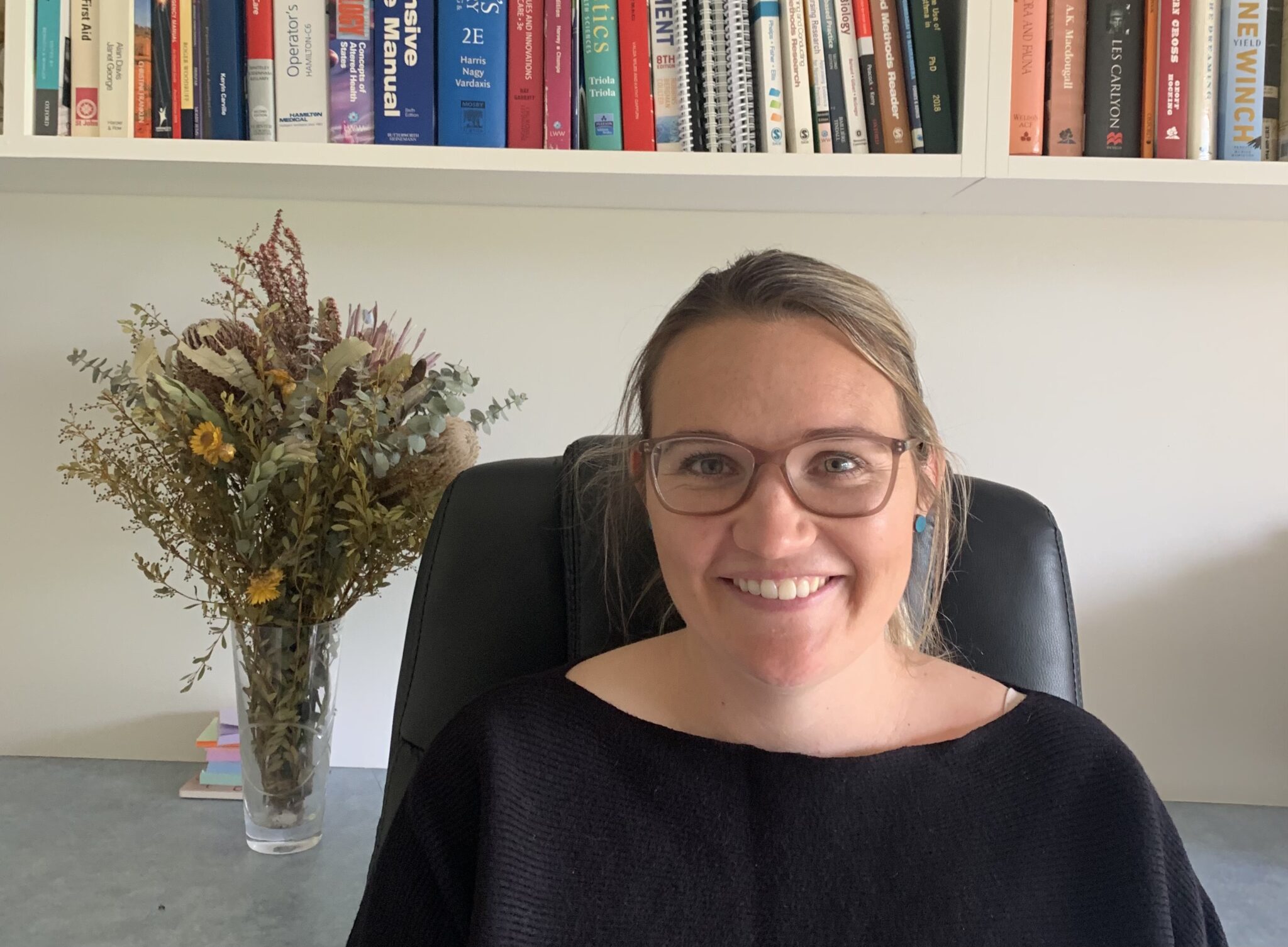Elyce studied nursing and paramedicine with Charles Sturt University, leading her to work as a nurse in Young, Bathurst and Broken Hill as well as building her skills as a critical care nurse. Following this, she headed back to Wagga Wagga to commence her PhD and begin a new phase of her career lecturing at Charles Sturt.
This role sees her empowering the rural health workforce through education, mentorship and research, also enabling her to get a clear snapshot of the state of rural health in Australia.
‘Most of us would be aware that the health outcomes of people in rural communities aren’t as good as those of our metro counterparts,’ she said.
‘But we deserve the opportunity to have those positive outcomes.
‘Without equitable access, the strength of our communities – whole towns and villages – are impacted. That’s often because what happens in a small community affects everyone. It’s not contained to just one person – there’s the network effect.
‘A lot of rural families, like mine, are farmers. They’ve had years of drought, bushfires and now a pandemic. That has had such an impact on mental health. People in these communities are saying that they need help. But they often have limited options to get that help.
‘Though technology has enabled telehealth services to play an important role, country people often want to sit down and talk with people, face-to-face.
‘Technological initiatives are one part of the solution. However, they’re not the whole solution. Rural and remote communities should be able to choose. To have the option between telehealth and face-to-face services.’
Elyce explains that there are things that can be done immediately to ensure country people enjoy good health and wellbeing.
‘Firstly, we need the health workforce to live and work in our rural communities,’ she said. ‘We must try and attract a range of health professionals to rural, regional and remote communities. Then we need to help them become part of those communities. Foster their connection with the community so they’ll want to stay.
‘Secondly, we need to give equal professional development opportunities to those health workers who already live in country areas. It’s about supporting our current health workforce; particularly in research and education.’
Charles Sturt University
Charles Sturt’s Master of Nursing (with specialisations) includes a new rural and remote nursing specialisation. Developed in consultation with industry, this specialisation is the only one of its kind in NSW, and one of only two in Australia. If you want to advance your career and extend the real and lasting difference you make in your community, consider the Master of Nursing at Charles Sturt University.
You can also ease back into study with Charles Sturt’s new graduate certificates in nursing, complete your course part-time in just 8-to-10 months, and receive credit when applying for the Master’s. Choose from:
- Graduate Certificate in Nursing (Aged Care)
- Graduate Certificate in Nursing (Clinical Education)
- Graduate Certificate in Nursing (Leadership and Management)
- Graduate Certificate in Nursing (Rural and Remote Nursing).
Charles Sturt’s new graduate certificates in nursing are part of the Government’s Job-Ready Graduates Package. Start studying your graduate certificate in 2022 and you can save with discounted course fees if you secure a Commonwealth supported place (CSP).
For more information, visit https://insight.study.csu.edu.au/postgraduate-nursing-degree/
You can also download the Master of Nursing flyer.



